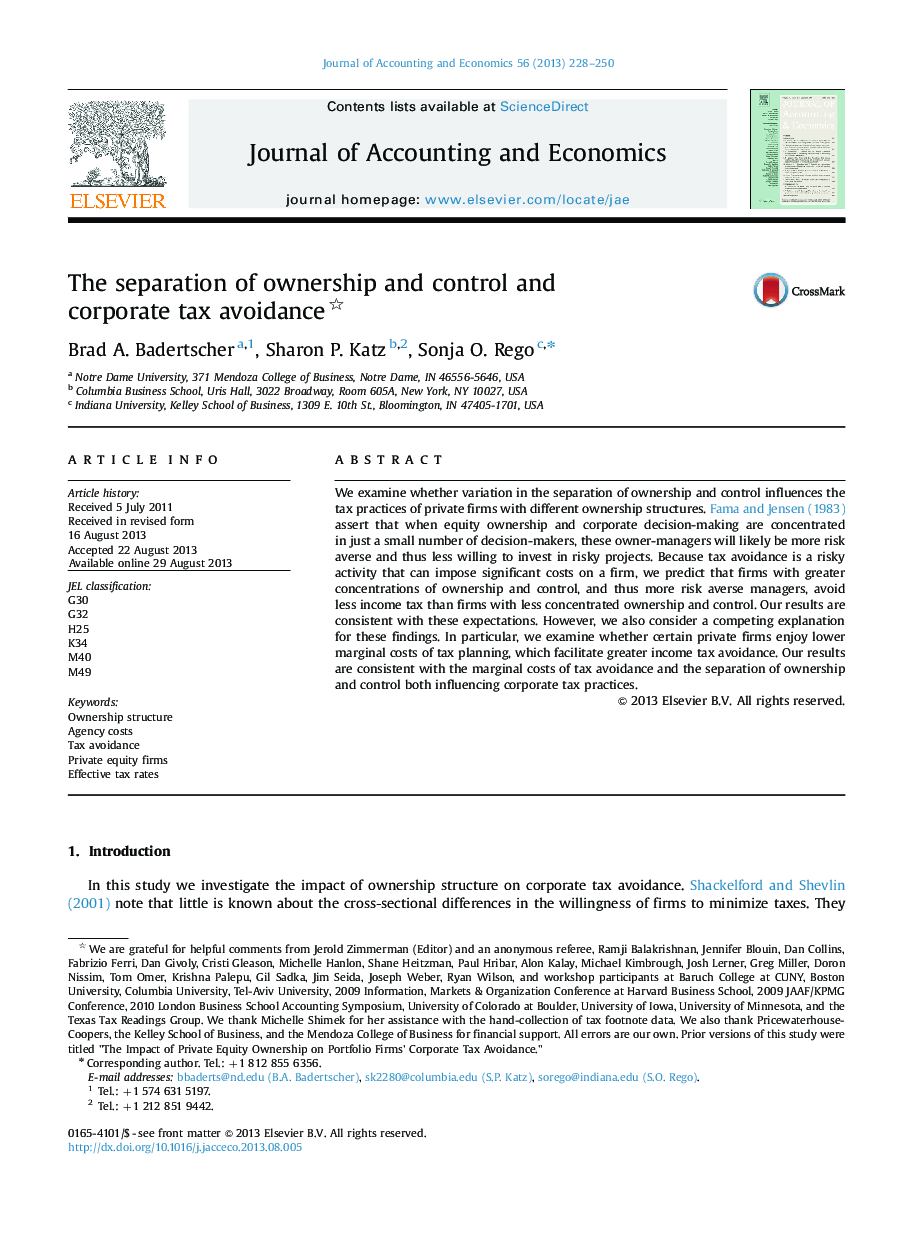| Article ID | Journal | Published Year | Pages | File Type |
|---|---|---|---|---|
| 5086751 | Journal of Accounting and Economics | 2013 | 23 Pages |
Abstract
We examine whether variation in the separation of ownership and control influences the tax practices of private firms with different ownership structures. Fama and Jensen (1983) assert that when equity ownership and corporate decision-making are concentrated in just a small number of decision-makers, these owner-managers will likely be more risk averse and thus less willing to invest in risky projects. Because tax avoidance is a risky activity that can impose significant costs on a firm, we predict that firms with greater concentrations of ownership and control, and thus more risk averse managers, avoid less income tax than firms with less concentrated ownership and control. Our results are consistent with these expectations. However, we also consider a competing explanation for these findings. In particular, we examine whether certain private firms enjoy lower marginal costs of tax planning, which facilitate greater income tax avoidance. Our results are consistent with the marginal costs of tax avoidance and the separation of ownership and control both influencing corporate tax practices.
Related Topics
Social Sciences and Humanities
Business, Management and Accounting
Accounting
Authors
Brad A. Badertscher, Sharon P. Katz, Sonja O. Rego,
